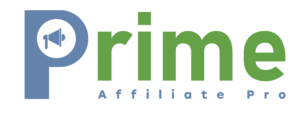Introduction
Open source is transforming the way we build and share software, empowering developers, businesses, and communities worldwide. What makes open source so powerful is its collaborative nature—software projects evolve through contributions from people across the globe, creating opportunities for individuals and organizations to innovate, learn, and grow together. Whether you’re a seasoned developer or someone just starting out, the open-source ecosystem offers endless possibilities for everyone to make an impact.
However, for beginners, navigating the open source world can feel daunting. With so many projects, platforms, and communities, it’s hard to know where to start. But here’s the good news: you don’t need to be an expert coder to contribute. Open source is not just about writing code; it’s about collaborating, sharing knowledge, and offering support. Even if you’re not yet a programming master, you can still make valuable contributions through documentation, design, bug testing, or even helping to spread the word about the project.
The beauty of open source is that it provides an environment where anyone can contribute and learn, regardless of their skill level. This inclusive approach allows people to gain real-world experience, solve complex problems, and join forces with passionate communities who are all working toward a common goal. Plus, contributing to open source can open doors to career opportunities, help you build a professional network, and improve your technical expertise.
Let’s explore the steps you can take to embark on this exciting journey and how you can get involved in open source projects, whether you’re looking to contribute a few hours a week or dive in full-time. Are you ready to make your mark in the open-source world? Let’s get started.
What is Open Source?
Open source software is publicly available, allowing anyone to read, alter, and distribute its source code. Unlike proprietary software, where the code is locked away, open source empowers developers and users alike to adapt the software to meet their specific needs. This collaborative approach fosters innovation and enables rapid problem-solving as contributors from diverse backgrounds bring unique perspectives to the table.
Popular examples of open source projects include Linux, the backbone of many operating systems; Mozilla Firefox, a widely-used web browser; and WordPress, the world’s leading content management system. These projects demonstrate how open source can drive significant technological advancements and build robust, reliable software solutions.
Open source is more than simply code; it is an attitude. It embodies the values of transparency, community, and shared knowledge. By participating, you’re not only helping build better software but also contributing to a global movement that champions accessibility, inclusivity, and innovation.

Why Should You Get Involved in Open Source?
1. Enhance Your Skills
Contributing to open source exposes you to real-world code and workflows, sharpening your programming and problem-solving skills.
2. Build Your Network
Open source communities are bustling with talented developers, offering a fantastic platform for networking and mentorship.
3. Make a Difference
Your contributions can have a global impact, empowering users and organizations to achieve more.
4. Boost Your Career
Recruiters often value open source experience as it demonstrates initiative, technical expertise, and the ability to work collaboratively.
How to Select the Right Open Source Project
1. Start with What You Love
Pick a project aligned with your interests or skills. If you love Python, look for Python-based projects. Enjoy design? Many open source projects need help with graphics and UX.
2. Check the Project’s Activity
Active projects with regular updates and responsive maintainers are the best starting points. Look for an active issue tracker and recent commits.
3. Review Contribution Guidelines
Most projects have contribution guidelines or a README file outlining how you can help. Ensure the guidelines align with your expertise and interests.
4. Assess the Community
A welcoming, supportive community is crucial. Browse forums, mailing lists, or chats to gauge the tone and inclusivity of the group.
Steps to Get Started with Open Source
1. Familiarize Yourself with Git and GitHub
Git and GitHub are essential tools for contributing to open source. Learn how to clone repositories, create branches, and send pull requests.
2. Set Up Your Development Environment
Install necessary tools, libraries, and dependencies. Many project repositories include setup instructions to help you get started.
3. Start Small
Begin with beginner-friendly issues. Many repositories label these as “good first issue” or “help wanted.”
4. Read the Documentation
Thoroughly read the project’s documentation to understand its purpose, structure, and coding standards.
5. Join the Community
Connect with the project’s community via forums, chats, or mailing lists. Introduce yourself and ask how you can help.
Types of Contributions You Can Make
1. Code Contributions
Create new features, repair issues, and improve existing programs.
2. Documentation Improvements
Help create or improve documentation, making the project more accessible to new users.
3. Testing
Test the software, identify bugs, and report issues.
4. Design
Contribute by designing logos, interfaces, or user experiences.
5. Translation
Translate documentation or the software itself into other languages.
Common Challenges and How to Overcome Them
1. Imposter Syndrome
Feeling like you’re not skilled enough? Remember that every contribution counts, no matter how tiny.
2. Understanding the Codebase
Large projects can be daunting. Take your time exploring the codebase and seek assistance from the community.
3. Dealing with Feedback
Constructive criticism is part of the process. Use it as an opportunity to learn and better.
Top Open Source Platforms to Explore
1. GitHub
The largest open source platform, hosting millions of repositories across various domains.
2. GitLab
Similar to GitHub but with additional CI/CD integration.
3. Source Forge
A veteran platform with a vast library of open source projects.
4. Open Source Initiatives
Dedicated platforms like Apache Software Foundation and Mozilla Developer Network offer curated project lists.
Benefits of Long-Term Contributions
1. Leadership Opportunities
Consistent contributors often grow into maintainers or project leaders.
2. Deep Learning
Solving complex issues enhances your expertise and knowledge.
3. Community Building
You’ll establish meaningful connections and contribute to a supportive ecosystem.
Final Thoughts
Starting with open source might seem intimidating, but remember, every seasoned contributor was once a beginner. The open source community thrives on the principle of collective effort, where even the smallest contributions matter. If you’re feeling overwhelmed, start by choosing a project you’re passionate about or one that aligns with your interests and skills. Whether it’s fixing a typo in the documentation, reporting a bug, or suggesting an improvement, your contributions will have an impact.
Take small, consistent steps. Familiarize yourself with the tools and workflows, such as Git and GitHub, and don’t hesitate to ask questions or seek guidance from the community. Open source communities are known for being inclusive and welcoming, especially to newcomers. Engage actively, be open to feedback, and use it as an opportunity to grow.
The beauty of open source is in its diversity. It’s not just about writing code; it’s about building relationships, sharing knowledge, and collectively solving problems that matter. You’ll find yourself part of a global network of like-minded individuals who are just as passionate about creating and innovating as you are. This sense of camaraderie and purpose can be incredibly motivating and rewarding.
Moreover, contributing to open source helps you develop invaluable skills, not only in programming but also in communication, collaboration, and problem-solving. It’s a chance to work on meaningful projects that can be used by thousands, if not millions, of people worldwide. The experience and connections you gain will undoubtedly enrich both your personal and professional life.
So, take the plunge! Open source isn’t about perfection—it’s about progress. Dive in, learn from your experiences, and enjoy the journey of contributing to something larger than yourself. The possibilities are endless, and the impact you make, no matter how small, is significant.
FAQs
1. Do I need to be an expert to contribute to open source?
Not at all! Beginners are welcome, and non-coding contributions like documentation and design are highly valued.
2. How can I find beginner-friendly projects?
Look for labels like “good first issue” or use platforms like First Timers Only and Up For Grabs.
3. What tools do I need to get started?
Basic tools include Git, a code editor (like VS Code), and knowledge of GitHub or similar platforms.
4. Can I make money from open source contributions?
While most contributions are unpaid, some organizations offer bounties or sponsorships for significant work.
5. How do I stay motivated in open source?
Focus on projects you’re passionate about and celebrate small wins. Engaging with the community also helps keep you inspired.

